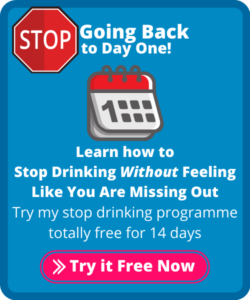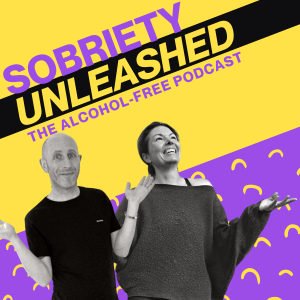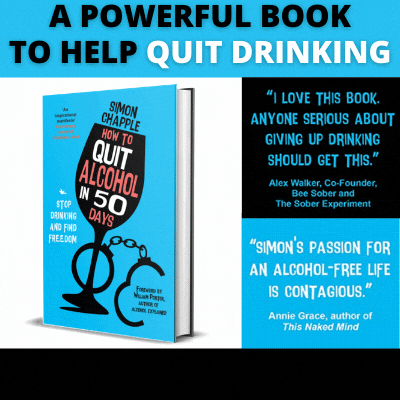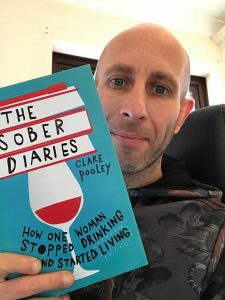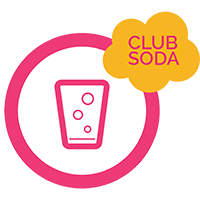The Causes of Alcoholism – Why do I have a problem with drinking when it doesn’t seem to affect others?
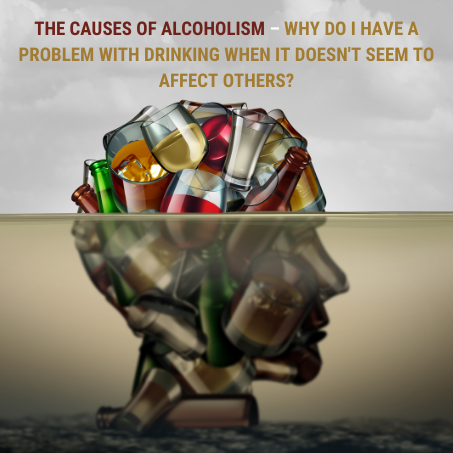
It’s been well documented throughout my website, the sober community and YouTube videos that for 20+ years I had a love affair with wine. To me wine was everything, it was my safe space to go to after a hard day at work, to help me relax and get in the mood at a social event, to rely on when stressed or to have as a celebration for an event. If you had said to me 5 years ago that I would never touch another drop of wine within a few years, I would not have believed you and furthermore, I would have hated the thought of it. I loved wine and I thought it loved me. Whilst I was concerned that I might have a problem with drinking, I didn’t want to face this at the time as I was too far into the grips of the addiction. It was easier to deny the issue than deal with it, I wasn’t ready to face up to reality at that point.
I remember when I started to become sober curious, I was concerned about my level of drinking and having experienced times where I told myself I would not have a drink but failed to stick to it even for one day. I had strong feelings of resentment in respect of the entire situation and was in despair. I loved to drink so why did I have an issue with alcohol when others didn’t? Why couldn’t I consume alcohol in moderation, take it or leave it like others can? I realise that addictions can easily be hidden and whilst some people may appear to be in control, this may not be as it seems. However, addiction does appear to strike people differently and I really wanted to explore this further. Keen to establish some of the key causes of how and why addictions manifest, which I am going to explore in this blog.
#1 Childhood Trauma
There have been a number of studies published which have shown a link between childhood trauma and addiction in later life. If there are unresolved issues from childhood, then this can manifest itself into an addiction to alcohol or other substances in later years. While I focus on alcohol here, it is important to note that many of the ‘causes’ can result in an array of addictions, not just one to alcohol. It may not necessarily be the trauma from childhood itself that causes the addiction, but it can something that is caused by the trauma such as increased anxiety, depression, lack of belonging and other mental health issues that make the person more likely to rely on alcohol. Once a habit forms using alcohol to manage childhood trauma, it is only a matter of time until this becomes a physical addiction.
#2 Genetic Pre-disposition
This theory is widely debated and has been the topic of numerous studies disputing it. However, many people genuinely believe they became an addict due to genetics. These people are often the latest in a long line of addicts in their family, spanning several generations. For these people, alcoholism is a way of life that has been engrained in them since childhood, is only natural they would think they were always ‘meant’ to be an alcoholic. However, others will argue it is not nature but nurture, genetics have not dictated the addiction but constant over exposure to alcohol abuse has.
#3 Addictive Personality
We all know people who have addictive personalities, we have seen how quickly they become entwined in any activities that can lead to addiction. It’s not uncommon for someone to become addicted to one thing and pick up other addictions as time goes by. For example, someone may enjoy gambling so much that this turns into an addiction and as time goes on they are known to drink every time they gamble – it is likely these people will find that they not only have a gambling addiction but an alcohol addition too. Furthermore, people can remove one addiction to replace it with another. Someone may find that exercising has helped them to stop drinking but they then become addicted to exercise as it fills the void.
#4 Coping Mechanism
People often tell me that they started drinking after a stressful day at work, just one glass to help them to relax. This may not be a problem for some but when every day at work is a stressful day, soon that glass will be needed every day and become necessary for them to be able to relax. That one glass can easily increase to 2 glasses then a bottle each night. Alcohol has a way of making people feel safe, a comforting hug helping them to cope, but it really is a dangerous drug in disguise.
#5 Age
Issues with alcohol can often be linked to those that started drinking early on in life, many alcoholics will tell you they started drinking as a child. For those of us with children, the thought is scary but we cannot shy from the truth. Addiction can easily take hold while people are extremely young and go unnoticed for many years, teenagers are often labelled as “enjoying their youth” when they abuse alcohol and this doesn’t raise the concern it should. The younger people start to drink alcohol the more and more they will need to get the same effect, the buzz they crave, and as such they will need to continue to increase their alcohol intake to keep up with the addiction. Those who start drinking much later in life are less likely to form an addiction as early on as the others because they haven’t had that head start. They tend to be much more sensible and informed when they start drinking which itself can help prevent a habit becoming an addiction before it’s too late.
I could write about possible causes of alcoholism all day, there are hundreds of them and a brief Google search can lead you down a rabbit hole of possibilities. Some theories are backed up by in-depth studies by reputable sources while others are just speculative. However, it is clear that this is something that many addicts look into as part of their journey to recovery. Answers can help the recovery process but do not let the unanswerable questions prevent you from becoming the sober person you wish to be.
Why some people get addicted and others don’t is an age old question and whilst we would all love to know, it is highly unlikely we will ever have a definitive answer. Rather than letting this question impact me, I prefer to focus on the here and now along with the steps I need to take every day to keep moving forward in my recovery – I recommend you do the same.

